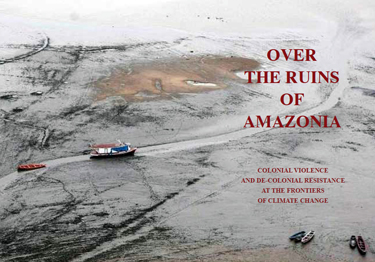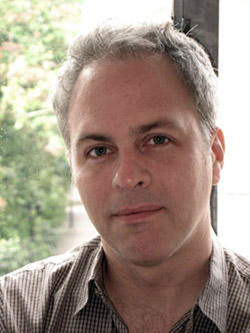The new Center for Creative Ecologies at UC Santa Cruz offers a place to consider the intersection of visual culture, politics, and the environment.
Embedded in the Arts Division’s History of Art and Visual Culture Department, its aim is to develop useful research tools to examine how cultural practitioners—filmmakers, new media strategists, photojournalists, architects, writers, activists, and interdisciplinary theorists—are critically addressing and creatively negotiating environmental concerns such as global warming and habitat destruction.
On October 13-27, the Center will present Global Climate Justice Today, a series of free public talks exploring the current meanings of climate justice for communities ranging from California to the Ecuadorian Amazon.
The concept of climate justice is built on the realization that addressing environmental change must include the consideration of structural inequalities, and that any solution must prioritize political and economic justice, as well as the participation of those most vulnerable to environmental impacts.
With that in mind, this series will address ongoing questions relevant to artists and activists alike, such as:
• How have new legal orders—such as the rights of nature enshrined recently in the constitutions of Ecuador and Bolivia—bolstered Indigenous environmental activism, as well as been contradicted by government-supported resource extraction as in Ecuador’s Yasuni National Park?
• How is climate change being currently addressed within religious communities in the North inspired by Pope Francis’ influential 2015 Encyclical on the Environment?
• How does climate change relate to histories of colonial violence and how is this legacy being challenged presently?
• What creative ecologies exist within artistic-activist practice that provide resources for addressing climate justice today?
The series is curated by History of Art and Visual Culture professor T.J. Demos, who is also the director of the Center for Creative Ecologies at UC Santa Cruz.
Demos writes on contemporary art, visual culture, and global politics. He is the author of The Migrant Image: The Art and Politics of Documentary During Global Crisis (2013), Return to the Postcolony: Spectres of Colonialism in Contemporary Art (2013), and a new book, titled Decolonizing Nature: Contemporary Art and Political Ecology, due out later this year.
He co-curated Rights of Nature: Art and Ecology in the Americas, at Nottingham Contemporary, one of Britain’s largest and leading centers for contemporary art, in January 2015, and organized Specters: A Ciné-Politics of Haunting, at the Reina Sofia Museum in Madrid in 2014.
Demos will participate in the series, along with featured guests:
• Valentin Lopez (Amah Mutsun Tribal Band)
• Flora Lu (UC Santa Cruz)
• Néstor L. Silva (Stanford University),
• Leila Salazar-Lopez (Amazon Watch)
• Andy Szasz (UC Santa Cruz)
• Paulo Tavares (Centre for Research Architecture, Goldsmiths, University of London/Pontificia Universidad Católica del Ecuador)
For the full schedule and detailed information about the talks, visit the Center For Creative Ecologies web site.




